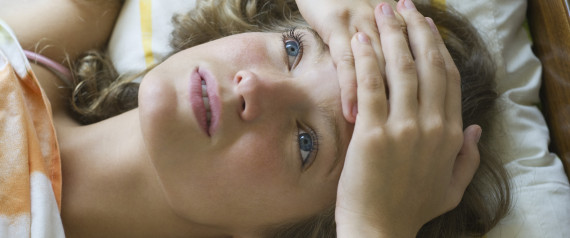
A new study further confirms that insomnia is linked with a wide range of health problems, including osteoporosis, anxiety and heart attack.
Scientists from Norway and Finland examined data from the Nord-Trøndelag Health Studies conducted between 1995 and 1997 and 2006 and 2008 that included 24,715 working people. They found that insomnia was a significant risk factor[1] for a number of health issues over the 11-year period.
Particularly, they found that insomnia was linked with a higher risk for anxiety, depression, fibromyalgia, whiplash, rheumatoid arthritis, arthrosis (an age-related cartilage degeneration condition), headache, asthma, heart attack and osteoporosis.
"The link to heart attacks[2] is particularly interesting," study researcher Børge Sivertsen, of the Norwegian Institute of Public Health, told Science Nordic. "One possible explanation is that sleep problems raise the stress response of the body, which has a negative impact on the function of the heart."
Researchers also found an association between insomnia and obesity, hypertension and stroke, but these links disappeared after adjusting for other factors.
"We conclude that insomnia predicts cumulative incidence of several physical and mental conditions," the researchers wrote in the study. "These results may have important clinical implications, and whether or not treatment of insomnia would have a preventive value for both physical and mental conditions should be studied further."
The findings were first reported by Science Nordic[3] , and are published in the Journal of Sleep Research[4] .
Insomnia has also been linked in past research to an increased risk of premature death, with a 2010 study in the journal Sleep[5] showing that chronic insomnia raised death risk[6] by four times among men over a 14-year period.
Also on HuffPost:
References
- ^ insomnia was a significant risk factor (onlinelibrary.wiley.com)
- ^ link to heart attacks (sciencenordic.com)
- ^ first reported by Science Nordic (sciencenordic.com)
- ^ Journal of Sleep Research (onlinelibrary.wiley.com)
- ^ 2010 study in the journal Sleep (www.journalsleep.org)
- ^ chronic insomnia raised death risk (www.sciencedaily.com)
- ^ Send us a tip (www.huffingtonpost.com)
- ^ Send us a photo or video (www.huffingtonpost.com)
- ^ Suggest a correction (www.huffingtonpost.com)

0 comments:
Post a Comment